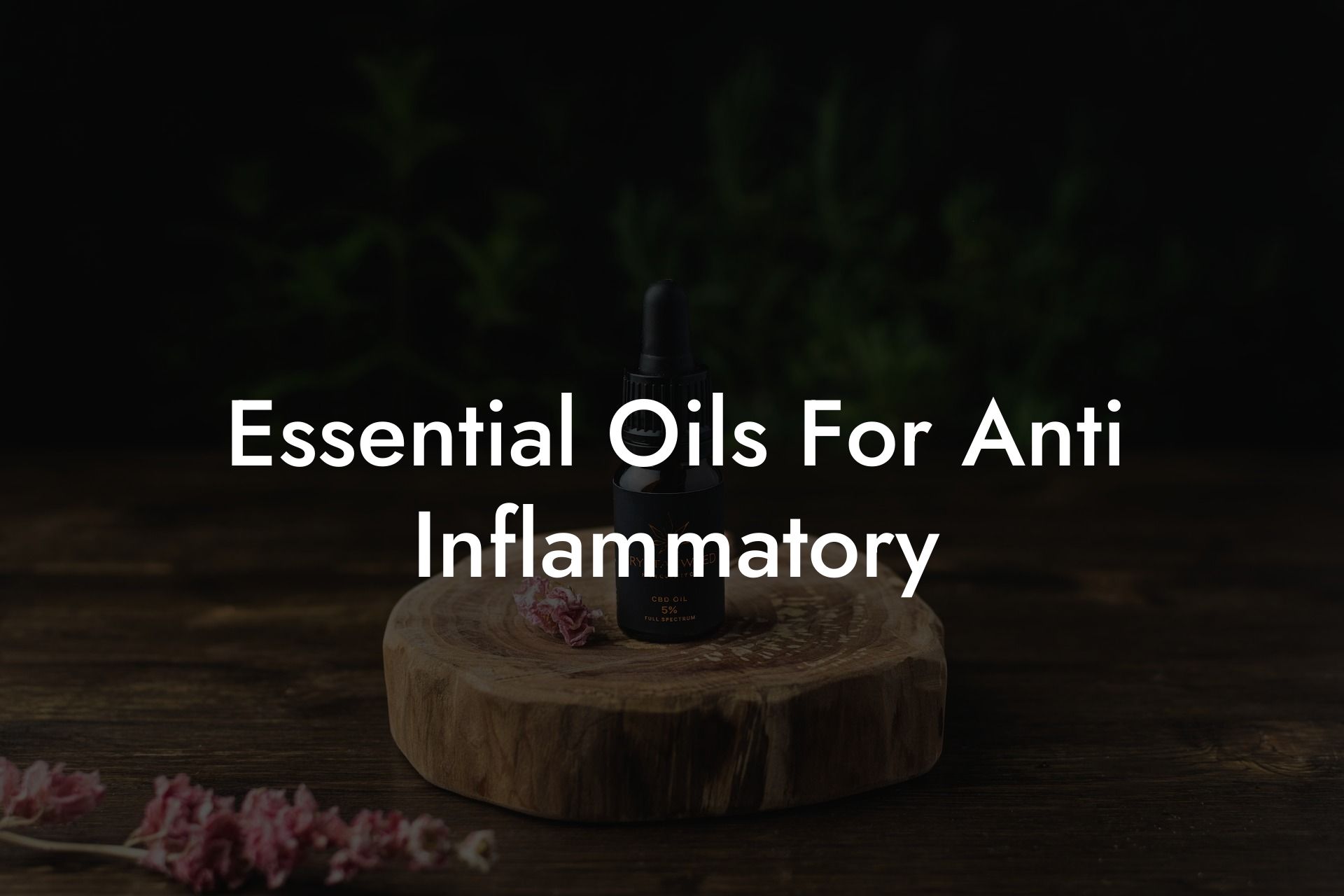Inflammation is a natural response of our body to fight off infections and heal from injuries. However, chronic inflammation can lead to a wide array of health issues like digestive problems, joint pain, and even skin irritations. One natural way to combat such inflammation is by incorporating essential oils into your daily routine. This article will explore the various essential oils known for their anti-inflammatory properties, how they work, and how to effectively use them for the best results.
Table of Contents
Top Anti-Inflammatory Essential Oils:
1. Lavender Oil:
Lavender oil is widely known for its calming and soothing properties. Apart from promoting relaxation, it also has potent anti-inflammatory effects that can help alleviate inflammation in the body. It is effective in reducing swelling, redness, and pain associated with inflammation.
2. Eucalyptus Oil:
Eucalyptus oil is known for its refreshing and invigorating aroma, but did you know it can also help reduce inflammation? Thanks to its active compound, 1,8-cineole, eucalyptus has strong anti-inflammatory and analgesic properties.
3. Peppermint Oil:
Peppermint oil is not just for freshening your breath. Its main active compound, menthol, exhibits anti-inflammatory effects that can help to soothe discomfort and reduce redness and swelling caused by inflammation.
4. Frankincense Oil:
Frankincense oil has been used for centuries for its healing and anti-inflammatory properties. This essential oil is derived from the resin of the Boswellia tree and can effectively reduce inflammation, especially in cases of arthritis and asthma.
5. Ginger Oil:
Ginger oil, derived from ginger root, possesses powerful anti-inflammatory and analgesic effects. It has been found to be particularly useful in reducing inflammation related to arthritis, muscle pain, and menstrual cramps.
6. Roman Chamomile Oil:
Roman chamomile essential oil is a natural remedy for inflammation. Its soothing and calming effects can help in reducing redness, irritation, and pain that come with inflammation.
How to Use Anti-Inflammatory Essential Oils:
Topical Application:
– Dilute essential oils in a carrier oil (such as coconut, almond, or jojoba oil) before applying to the skin. Follow the recommended dilution rate, usually ranging between 2% and 5%, depending on the essential oil and the area being treated.
– Massage the oil blend onto affected areas like joints, muscles, or sore spots.
Aromatherapy:
– Use a diffuser to disperse the essential oil molecules into the air, allowing you to inhale the soothing and healing properties.
– Add a few drops of the essential oil to a warm bath and soak for 20-30 minutes.
Caution: Make sure to follow proper dilution guidelines and perform a patch test before applying essential oils on your skin. If you’re pregnant, nursing, or have a medical condition, consult with a healthcare professional before using essential oils.
Essential Oils For Anti Inflammatory Example:
Imagine you’re dealing with an inflammation-induced pain in your knee joints. You can create a custom anti-inflammatory essential oil blend to help soothe the discomfort and increase mobility.
Recipe: 5 drops lavender oil, 4 drops ginger oil, 3 drops frankincense oil, and 2 ounces of carrier oil (like almond oil). Combine all ingredients in a glass container and mix thoroughly.
Apply this blend to the affected area and gently massage the mixture in circular motions, allowing your skin to absorb the oils. Use this blend consistently to experience a significant reduction in inflammation and discomfort.
Now that you know the powerful benefits of essential oils for combating inflammation, it’s time to take control of your overall wellbeing. Be sure to explore other essential oil guides on Oshu Oils’ blog and consider incorporating the Oshu Oils range into your daily routine. Should you find this article helpful, don’t hesitate to share it with your loved ones and spread the word about the amazing healing properties of essential oils!





















